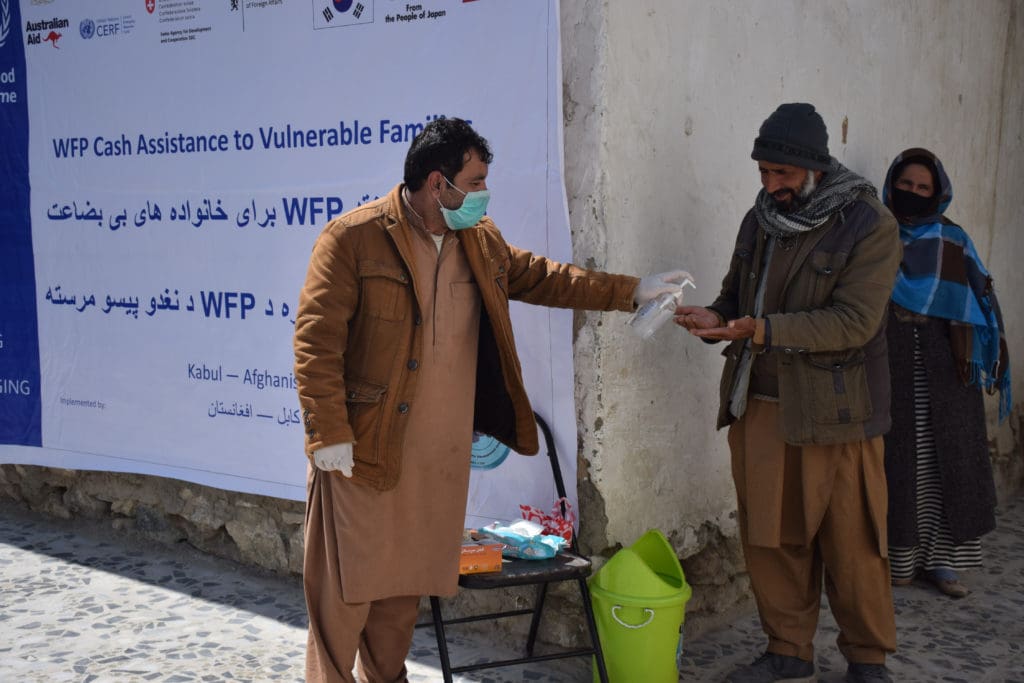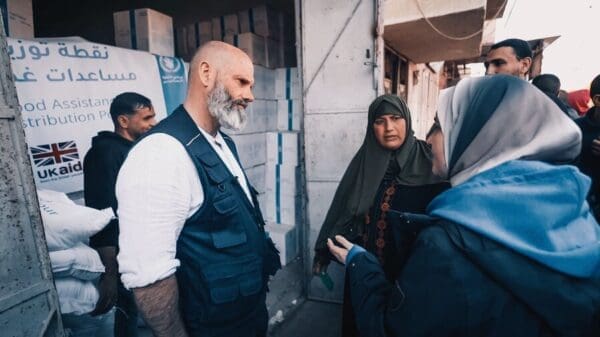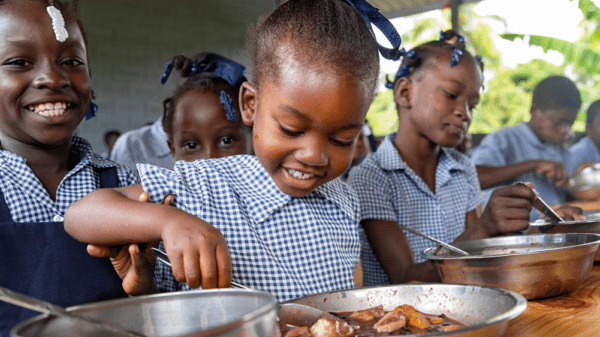
Food Stocks and Medical Supplies: How WFP Is Rising to the Challenge of COVID-19
True to its nature as an agency that is always on the frontline of the toughest emergencies, WFP is already providing support in the response to the novel Coronavirus (COVID-19) pandemic and adapting its planning to ensure operations can carry on in a highly volatile environment. Whether it is a crisis caused by conflict, disaster, or a health emergency, such as the Ebola outbreaks in recent years, WFP always stands prepared to help.
“The survival of millions of people depends on us,” WFP Executive Director, David Beasley, said in the week when the COVID-19 pandemic gripped global attention. “We must rise up to the occasion and be there for them.”
Immediate response
Among a number of immediate actions in response to the COVID-19 pandemic, WFP has provided support to the Chinese government’s efforts to curb the spread of the virus by delivering lifesaving medical equipment to hospitals in Hubei province, the epicentre of the outbreak.
In Iran, one of the countries hardest hit by the virus, a generous donation by Japan is enabling WFP to provide a two-month supply of personal protection equipment — masks, gloves and coverall gowns — for more than 2,000 staff and volunteers from the Iranian Red Crescent Society. The items will be airlifted into Iran from the United Nations Humanitarian Response Depot in Dubai within coming weeks.

WFP is preparing to dispatch 13 shipments of personal protective equipment items for WHO; these COVID-19 supplies are now on their way to support healthcare workers in South America.
WFP will also continue to provide food and cash to 31,000 Afghan and Iraqi refugees living in settlements across the country to ensure that their food needs are maintained at an acceptable level during the pandemic.
Elsewhere, WFP is providing support to governments’ preparedness and response efforts — one such case is El Salvador, where the organization has provided the Government with technical and financial support for setting up warehouses and for storing and delivering items donated for people in quarantine. Also, WFP has provided immediate food assistance to people in isolation and is working closely with partners to ensure these people have access to nutritious foods.
Getting ready for what’s to come
Amid mounting concerns about the spread of the virus and the consequences that this — and the protective measures taken to contain it — might have on food systems, WFP is using its long-standing expertise to monitor markets, supply chains and prices.

Beneficiaries in Afghanistan on March 19th sanitize their hands before registering for WFP’s cash assistance. The cash transfer is part of WFP’s social protection program that provides 1,280 families with $40 per month to buy the food they need.
Analysis is also extended to identifying areas of vulnerability, both in terms of locations and programs, with school feeding being particularly affected by school closures in dozens of countries. As schools close across the world, many millions of children will lose the nutritious daily meals and snacks that they normally received in their place of learning.
Data collected on possible supply chain breaks, food shortages or price spikes will help WFP to ensure that the 86 million people it aims to serve this year will continue to receive the food assistance they need, when they need it.
Having food in place — and the flexibility to switch from in-kind assistance to cash or vice versa — is key to this. WFP is currently aiming to pre-position stocks of food to be easily accessible and readily available, even in case of trade or movement restrictions, or other disruptions that may occur due to social unrest.
Vital partnerships
At a time like this, it is critical that substantial, fully flexible funding is made available to enable contingency planning that will allow operations to continue running smoothly. WFP is in regular dialogue with donor governments to update them on the evolving situation and ensure that the right decisions are made on funding priorities to provide a guaranteed flow of vital food assistance to vulnerable populations.
As the lead agency of the Logistics and Emergency Telecommunications Clusters, WFP is also ready to lend the expertise and infrastructure other UN and humanitarian agencies might need as they join the response to the virus. In previous global emergencies this has been a valuable asset alongside the use of the strategically positioned UN Humanitarian Response Depots that WFP has placed as staging areas to load and deliver vital supplies across the world.
Please help WFP at this time of global crisis. Donate now.
This piece was written by Simona Beltrami and originally appeared on WFP’s Insights.




